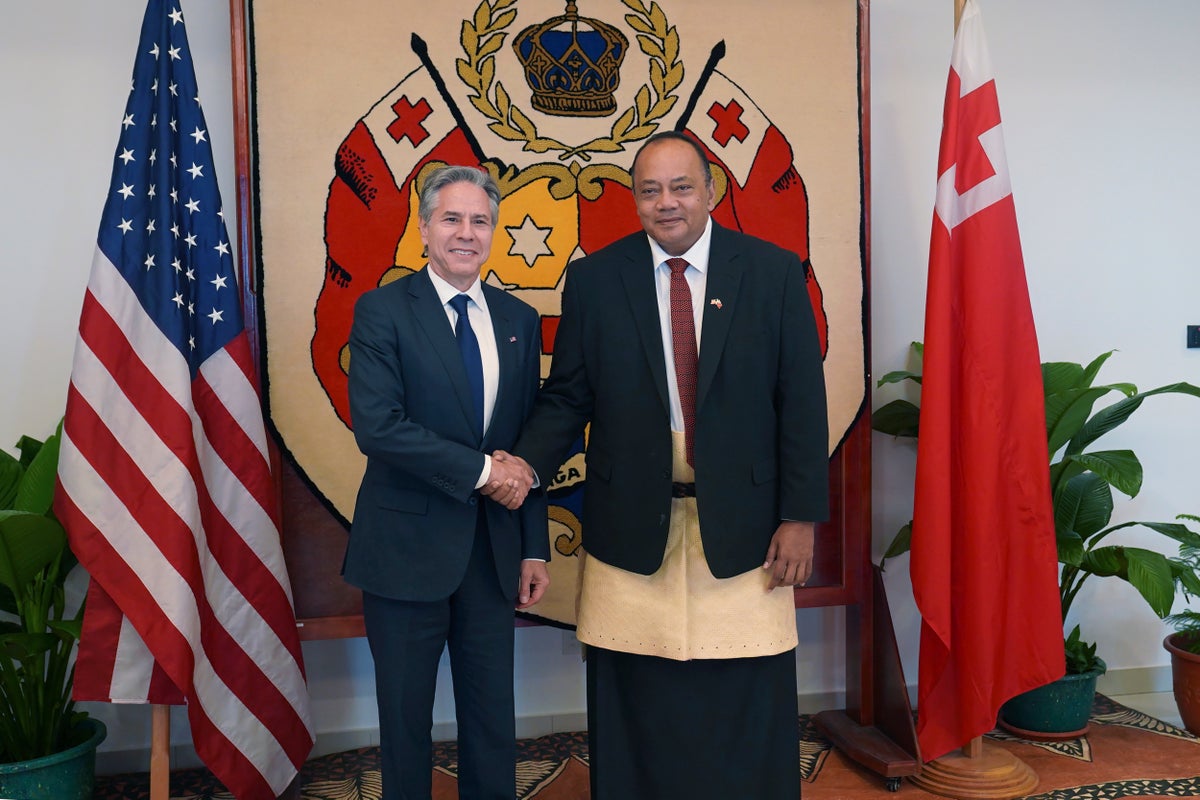
Secretary of State Antony Blinken visited the tiny kingdom of Tonga on Wednesday, as the United States continues to increase its diplomatic efforts in the Pacific while China's influence in the region grows.
Home to just over 100,000 people, Tonga last year was the site of a massive volcanic eruption that sent millions of tons of water vapor into the atmosphere and killed four people in Tonga.
Blinken's visit helped highlight the opening of a new U.S. Embassy in Tonga and the return of Peace Corps volunteers following the end of the COVID-19 pandemic.
Blinken met with Tongan Prime Minister Siaosi Sovaleni and other officials to discuss the bilateral relationship as well as regional and global issues, said State Department spokesperson Matthew Miller.
“Secretary Blinken outlined how the United States is following through on commitments made by President Biden at last year’s historic summit with Pacific Islands leaders to elevate our diplomatic and development presence and engagement in the region,” Miller said in a statement.
Miller said the visit also highlighted U.S. efforts to tackle the Pacific climate crisis, including by expanding early warning systems.
Blinken next travels to New Zealand, where on Thursday he will meet with officials and watch the women’s World Cup soccer match between the U.S. and the Netherlands. He then travels to Brisbane, Australia, for meetings with Defense Secretary Lloyd Austin and their Australian counterparts.
The trip is Blinken’s third to the Asia-Pacific region in the past two months, following visits to China and Indonesia. Second gentleman Doug Emhoff, the husband of U.S. Vice President Kamala Harris, also just finished a visit to New Zealand and Samoa. French President Emmanuel Macron began a trip to the South Pacific this week.
Blinken’s travel was announced soon after the State Department notified Congress it plans a massive increase in diplomatic personnel and spending for facilities at new U.S. embassies in the Pacific islands. The update to Congress pointed out that China has permanent diplomatic facilities in eight of the 12 Pacific island nations that the U.S. recognizes and said the U.S. needs to catch up.







